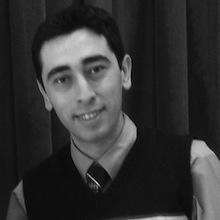A Response to “Muslim Superheroes”
by Kemal Budak
David Lewis talks about a niche topic, Muslim superheroes, located at the intersection of religion, media, culture, and immigration and he turns it into a relevant one. As mentioned below, immigration is particularly a conspicuous theme with the Muslim superheroes.
The minorities are generally underrepresented in cultural products and Muslims are no exception. On top of the symbolic annihilation Muslims go through, they are also the victims of demonization in many cultural products.
Muslims as superheroes are relatively new in the comic books scene with a few exceptions. Lewis rightly ties superheroes in general to the immigrant experience. They are not only from another country, but mostly from another planet. But interestingly enough, they don’t go through the difficulties of being an immigrant thanks to their superpowers. This brings us to one of the most popular Muslim superheroes: Kamala Khan (aka Ms Marvel).
Kamala Khan is the stereotypical example of a member of an immigrant family. A tiger mom, a hardworking but distant dad, a conservative brother, and a rebellious sister (herself) complete the diamond. As I stated in a previous response, many young second-generation Muslims feel trapped in a purgatory between their parents and the host society. They do not want to live in the ghettos, nor do they want to be fully Americanized by leaving everything behind. A constant negotiation occurs during the identity-formation process. This being-in-limbo situation along with the continuous negotiation requires Muslim youth to have some superhuman powers to tackle such problems. Maybe, it is all Muslim immigrants who display superhero powers every day in Muslim-minority countries.
Being a Muslim gives her an upper ceiling as Lewis notes. This is true. In the pantheon of superheroes, Kamala Khan is not among the strongest or the most visible. Does she have to be? Her life story in Ms Marvel No Normal is one of the millions of immigrant experiences. Did Mamoudou Gassama, for example, show less superhuman powers than any other fictional Marvel character when he saved a small boy dangling from a balcony in Paris a few days ago? How about a Muslim child of the same age whose parents went through dangerous routes to come to a European capital? Is such a kid in less danger than the dangling boy in Paris? Since Muslim migrants are not granted citizenship once they arrive in a country, it seems that it takes a superhero-like effort, as in the case of Gassama, to deserve a citizenship. Gassama is the new Spider Man without the fanfare, or he is the new Kamala Khan without the auspices of Ms Marvel.
Lewis is right that Kamala Khan’s ceiling is limited because she only appears through her identity or ethnicity. I think this is also true with some other Muslim superheroes. Are Muslim superheroes present in those books for the sake of diversity or do they take action based on their religious identity? While definitely not an expert on this, I think, it looks like the former is more valid. What do Muslim superheroes add to the superhero universe other than bearing a Muslim identity, something similar to those of many other superheroes? What makes them unique? Or are they just a piece in the diversity mosaic Marvel tries to achieve?
The traditional scholars of the Muslim world are not ready for such superheroes whose superhuman powers are at odds with God’s infinite power and omnipresence. Add the sexualization of most female characters (even when they are in burqas) in these books, and they can easily become a taboo in Muslim-majority countries. Even the well-intentioned initiative by Mr Mutawa faced prohibition by Saudi Arabian authorities despite President Obama’s praise.
In my Religion and Immigration class I will be teaching on this fall at Emory University, Kamala Khan will definitely be in my syllabus. Her conflicts with her family and with the imam in the community mosque exemplify the common themes many second-generation immigrants in the United States and other Western countries go through. There are Kamala Khans, like Mamoudou Gassama, everywhere and we ignore and trivialize their daily efforts unless they display a public act of superhero. So, it should be fair to ask this question: are the Superheroes immigrants, or the immigrants are superheroes?



